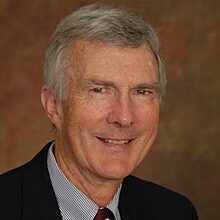Healthy Democracy’s good friend and former Board member, John Frohnmayer, shares his thoughts on what we are learning from the Corona Virus, and the opportunities that live on the other side of the crisis.
Faced with the Civil War and the potential dissolution of the Union, Abraham Lincoln said: “The dogmas of the quiet past are inadequate for the stormy present . . . We must think anew and act anew . . . We must disenthrall ourselves and then we will save our country.”
The COVID-19 virus is our generation’s challenge, a challenge for which we were and are unprepared, either adequately to fight it or to imagine how this all will come out. But, as with every crisis, there comes opportunity. We should have a moral debate about how we wish our country to look and act on the other side of this crisis. A moral debate examines how we wish to live our lives. A political debate (which we have more than enough of) is about winning.
To do this we will, in Lincoln’s words, have to disenthrall ourselves, that is put aside the bag of beliefs and prejudices we all have, and talk honestly and respectfully to each other. And listen. It is a process Martin Luther King, Jr. describes as “cleansing” in his Letter from Birmingham Jail.
Here are some questions we might address:
- Is our only choice with COVID-19 to save the economy or to save lives? Is it like a war where there are “acceptable losses”?
- Is our capitalist economy, based on perpetual growth, sustainable without ruining the planet?
- If we had a health care system that covered all of us and that allocated resources nationally, would we be in better shape to combat epidemics?
- What responsibility do our elected officials and those in the news and other public positions have to tell us the truth?
- Are we at a point in our society where we cannot agree on what the truth is?
- Are we happy about our hostile society where we sling insults and pejoratives at each other?
- Is the gulf between the very rich and the poor consistent with democracy? Should there be some minimum level of sustenance guaranteed to all?
- Have the vast sums we have expended on what we call defense made us safer? Is there an alternative?
- Are we, individually and collectively, willing to sacrifice? If so, for what?
- If we could change just one thing to make our country better, what would it be?
- Does the accumulation of power for power’s sake make any sense in our governmental system?
- Are we a nation of laws, or does the law favor some over others?
- What can we do to make our education system better?
Here are some thoughts for guiding the discussion: a) virtually every ethical system is based on some version of the golden rule—what is good for me must be good for all; b) all are entitled to individual dignity; c) the pursuit of happiness in the Declaration of Independence is a collective, not an individual pursuit.
A final thought. Since we have some time on our hands, why not re-read the Constitution and the first 10 Amendments. It’s only 23 pages long and it never hurts to remember the Supreme Law of the Land.


